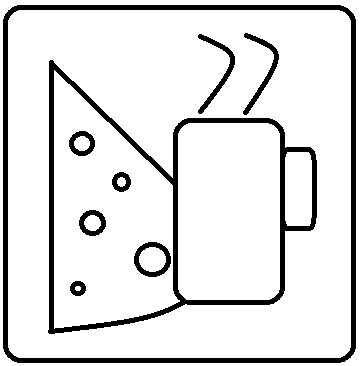My Experience with Being a Self-Taught Engineer
Engineer. It sounds like a title to me. Like Knight. A title you have to be trained to earn and have another engineer bestow it upon you with a graphing calculator tap to the shoulders. I’m sure in some fields, it probably is that way, like in nuclear or chemical engineering. I don’t think you can go out, take some books from the library, take a few tests from a company making products for the nuclear power plants, can call yourself a nuclear engineer.
In systems, this is COMPLETELY not the case. Many of the folks I’ve worked with have had nothing more than a high school diploma. Some have had some college coursework and either quit or just got an associate’s degree, and many with Bachelor’s degrees don’t have them in any kind of IT field of study. Not computer science, information systems, or even electronics.
I’m of the latter type. I have a degree in mathematics. I did some programming in my mathematics study for things like numerical analysis or whatever, but it was straight programming in FORTRAN…nothing anyone would do professionally in an IT-type role. I got my first job out of college as a student trainee working for the Army as a civilian employee. Being a student was required, but not being a student in any particular field.
I had a guy teach me in my first week how to load Windows NT 4.0 onto a bare metal server. He did that once. Soon thereafter, we did a huge PC upgrade for 1/3 of the entire division, and I was staring at a room full of Dell PCs to image with Ghost. Unbox, boot it up with the boot floppy, pull down the image, reboot, and join it to the domain. This is before anything like SCCM could help with this, and I did over 300 machines this way manually. I helped load them on the truck, rode up to the Pentagon, and worked throughout the building replacing machines. Being the military, of course, the generals and colonels got theirs first, then their machines went down the line, and so on. We replaced 1/3 a year, and ended up touching and moving Every. Single. One., Every. Single. Year.
That was my intro…I then picked up some books and started studying, because it was clear that I didn’t want to be the grunt my whole life. An MCSE in Windows NT 4, a CCNP from Cisco, a CCA from Citrix, and a few other random certifications later, my job title was Systems Engineer.
How does this make me in terms of where I feel like I am technically? Almost 20 years in, I am pretty good at what I do, but I do think there are gaps that have taken me longer to fill. Little stuff that I just simply didn’t learn along the way. Instructors share tips that you won’t find on your own until you’re a long way in and stuck on something. The big picture is harder to grasp, too, unless you are willing to read some best practice documentation to see how things “should” be. Lots of self-taught folks like to dig in immediately, and, being geeks, aren’t too keen on reading the instructions.
It reminds me of something my wife shared regarding teaching elementary kids arithmetic. I was taught to multiply right-to-left: multiply the bottom right-hand digit to all the ones on the top number, “carry” as necessary, and write that down. Then go to the next digit to the left and doing the same, making sure to leave a blank column on the result, and so on, and then add up all those numbers. The thing is, I did it this way for darn near 40 years, but that doesn’t mean that I knew what any of that meant. What I really was doing was breaking down the numbers into their place value components, and distributing each to all the others, then adding that together. (There’s the mathematics degree applied to the real world!) What’s the difference? I learned an ALGORITHM to doing the problem, but I didn’t learn WHY or HOW it worked. This isn’t how schools necessarily teach multiplication anymore, which is tough for parents, but at least it does implant some sense of why.
This is where I think being self-taught leaves gaps. 20 years in, I learn how things work by doing them from instructions or by taking what I know from my years of experience and trying similar steps with new stuff. Basically, following an algorithm. There are hows and whys, though, that most people (myself included) don’t immediately get from doing it this way. Does it matter day-to-day? Not really. Do the job and you’re fine. Are there times where you have to know why it works that way and the self-taught struggle? I think so.
Fortunately, with experience, free online courses, and Google, you can overcome these gaps yourself. I’m just not convinced it’s as easy to do as it sounds, and I’m not sure that the term “engineer” should be applied to IT professionals. How about just Professional?
